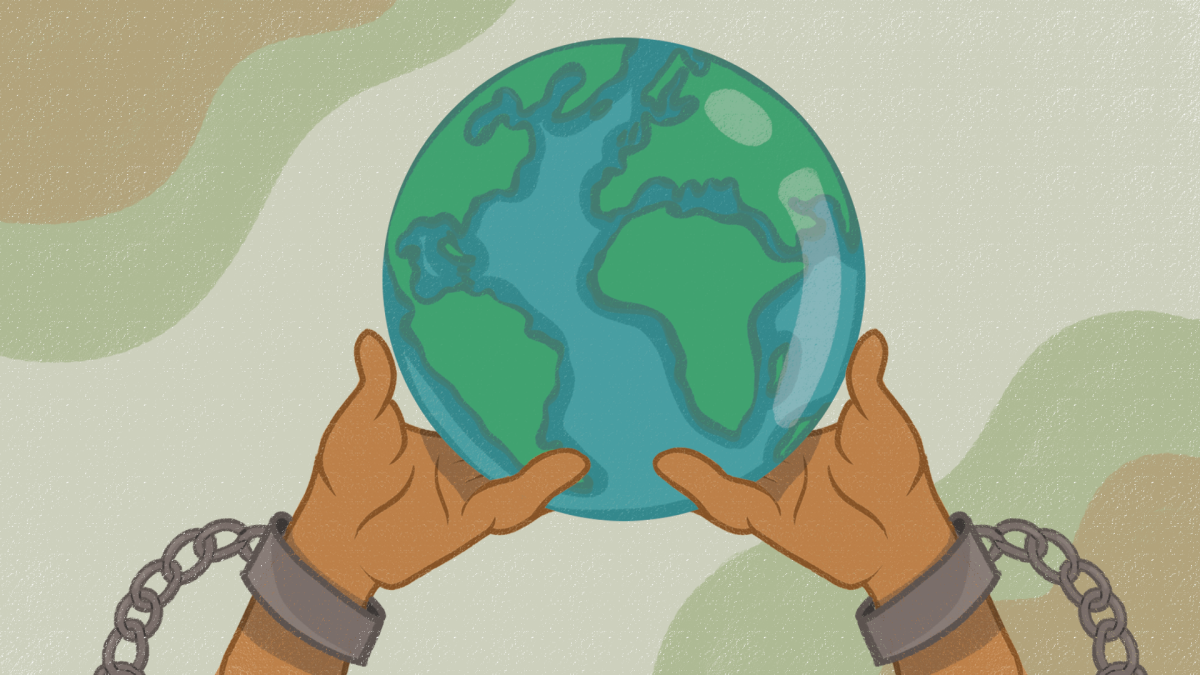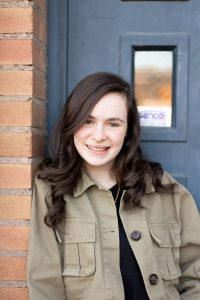Former President Donald Trump barely entered the Fulton County Jail in Georgia to be indicted on felony charges before being released back to the public. He spent a whopping 20 minutes there — yet still found room to lament the violent reputation of Fulton County Jail in a fundraising email.
Unlike Trump, some people spend months or years in limbo in jail due to the clogged criminal system marginalizing their cases. People trapped there suffer from insect infestations, malnourishment, brutality from staff and even death. Trump’s commentary serves as a reminder that our former president will not endure the inhumane conditions of the United States criminal system he expressed fear over.
Many Americans celebrate Trump’s booking in the notoriously disgusting Fulton County Jail, but we should resist the temptation to promote cruelty in incarceration. Violence behind bars makes us all less safe.
Criminal Injustice
Powerful people like Trump are not the ones punished by inhumane criminal justice institutions. Importantly, racially minoritized people and people in poverty are more likely to face arrest than their white and financially stable counterparts.
The court system deems people deserving or undeserving of brutality, humiliation and pain. But it feeds the cycle of harm for the sake of preexisting injuries by sentencing people to institutional violence.
The Prison Policy Initiative seeks to tell the masses about the horrifying realities of the U.S. prison system, so we can build a better world. We can create lasting change with evidence-based action. But first, we must listen to evidence even when it points to unexpected places. For example, our leaders can fight criminalization with Housing First initiatives.
We can’t build a stable society with our most vulnerable people constantly falling through the grate. Instead, meeting people’s basic needs can only make our world better and safer for all.
The Public Eye
Trump’s complaints about the conditions inside the Fulton County Jail do not apply to his case. He wanted to garner sympathy for his indictment in the form of donations, which we should not be inclined to give. But we can still use his words as a launching point for greater awareness about the violence he evades because of his high political status.
The vast majority of people would not be nearly as lucky if they went through the justice system. Abuse behind bars in the U.S. criminal justice system continues because those who have the power to change, turn a blind eye to violence.
Our legislatures in Congress and the Senate write our rules and create our budgets. They line their pockets and neglect the masses. Our Utah politicians do not experience hunger. Yet they have the audacity to say working-class Utahns are the problem for exploiting nutrition programs.
Our responsibility as either sufferers or beneficiaries of their policies is to spit fire in their printed garden.
Incarcerated people are some of the most vulnerable folks in society. They have absolutely no control over their next steps. Confinement does not heal our communities or bring justice to hurt people. Instead, the people held in confinement are subject to abuse and sexual whims of their captors. We need to pressure our politicians to make prison abolition a priority.
Cruel and Unusual
The cruelty of living without self-determination is hard enough — particularly on the minds of people who are behind bars. But the biggest threat to community care is unleashing the haunting pains, trauma and paranoia onto the communities they come from. Most people will return to their communities after dealing with the criminal justice system.
When they return, they will take up space and enter relationships with others. As all humans do, we create potential for our futures by building upon our past. If our government simply pumps people through a system designed to punish and exploit, these individuals will only know fear and distrust.
Prison education programs like the University of Utah Prison Education Project (UPEP) make a new future possible for formerly incarcerated people. They reduce return rates to prisons and give people hope — all while trapped in a tormenting enclosure.
While we work to create a world without people behind bars, we must support institutions that make the lives of incarcerated people more bearable. Create caring possibilities for people rather than curating condemnation. UPEP sports a powerful antiracist statement in solidarity with the Black Lives Matter movement, which included, “Enacting state disciplinary power is never the answer to systemic racism, psychological trauma, and multi-generational harm.”
The program started small in 2017 but has since gained momentum and a full-time staff. For all the justice work that must be done, we can take heart that UPEP makes a tangible difference in people’s immediate lives and future.
Institutions like UPEP are vital in our communities and should be valued accordingly. If we want to create a direct impact in your community, we must offer volunteer service and donations to profoundly important organizations like UPEP.
Abolition is Care
Trump promoted the violent overthrow of our country’s leadership based on false claims about the 2020 presidential election. But he walks free, just as most perpetrators of harm do. When we as a society lock people away, we instead push people out of sight. This must not be the way our society deals with severe social inequities.
Rather than creating community accountability, prisons create more suffering and disruption for people systematically targeted by law enforcement — the poor and the marginalized people of our society. The criminal justice system feeds into cycles of racialized and class-based oppression by punishing people with imprisonment.
Just as the U.S. emerged recently on the world stage, so has our criminal injustice system. And it already demonstrates it is ineffective at keeping people safe. It’s time to abolish the prison system to make room for caring possibilities.





patrick shea • Sep 20, 2023 at 4:36 pm
A couple of tragic facts. In public education, Utah spends approximately $7100 per student (Weight Pupil Unit), 50th out of 52nd states. Alternatively, minimum/medium confinement costs Utah taxpayers $35,000 per prisoner each year if you are a prisoner at one of Utah state prisons. If you are in maximum security, the fastest growing prison population, Utah taxpayers pay $50,000 to $75,000 per person per year.
I taught a 4th grade class for six weeks, one day a week about water. There is a 30% turnover in the student body at Rose Park Elementary, and many of my students were living with a single parent, a grandparent or other relatives. The Princpal at Rose Park told me that the fifth graders begin gettting recruited into gangs. The gangs become their “family”. And, there is a high correlation between gang membership and serving time. I have represented prisoner on civil rights claims for their civil rights. If the prisoners had gotten a good education our prison population would be significantly smaller and the money saved could be applied to public education, particularly to raise teacher’s salaries. Thank you for your excellent opinion piece.
NingLi Loken • Sep 21, 2023 at 3:45 am
Thank you for sharing your experience and knowledge. Giving communities the resources they are asking for makes connections through gangs less necessary for folks who are economically disempowered and out of options. Redistributing power is essential because people know what they need to improve their lives: community.
martine fedoroskovic • Sep 20, 2023 at 9:01 am
If i may summarize your key points: whitie is evil and horrible. black criminals should be given the same treatment as donald trump because he is orange man.
brilliant.
NingLi Loken • Sep 21, 2023 at 3:46 am
If you are requesting, you may not.